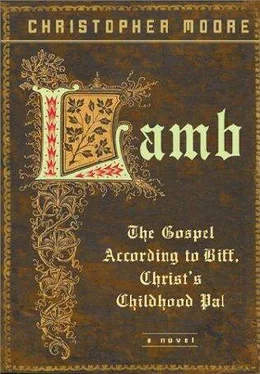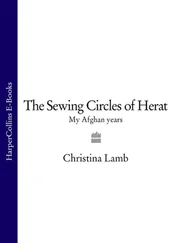“Go to the temple and sit,” Gaspar said.
No tea? He was obviously still not happy about my almost-threat on his life. I backed out of the door bowing (a courtesy Joy had taught me).
“One more thing,” Gaspar said. I stopped and waited. “Number Seven said that you would not live through the night. Number Eight agreed. How is it that you are not only alive, but unhurt?”
I thought about it for a second before I answered, something I seldom do, then I said, “Perhaps those monks value their own opinions too highly. I can only hope that they have not corrupted anyone else’s thinking.”
“Go sit,” Gaspar said.
Sitting was what we did. To learn to sit, to be still and hear the music of the universe, was why we had come halfway around the world, evidently. To let go of ego, not individuality, but that which distinguishes us from all other beings. “When you sit, sit. When you breathe, breathe. When you eat, eat,” Gaspar would say, meaning that every bit of our being was to be in the moment, completely aware of the now, no past, no future, nothing dividing us from everything that is.
It’s hard for me, a Jew, to stay in the moment. Without the past, where is the guilt? And without the future, where is the dread? And without guilt and dread, who am I?
“See your skin as what connects you to the universe, not what separates you from it,” Gaspar told me, trying to teach me the essence of what enlightenment meant, while admitting that it was not something that could be taught. Method he could teach. Gaspar could sit.
The legend went (I pieced it together from bits dropped by the master and his monks) that Gaspar had built the monastery as a place to sit. Many years ago he had come to China from India, where he had been born a prince, to teach the emperor and his court the true meaning of Buddhism, which had been lost in years of dogma and overinterpretation of scripture.
Upon arriving, the emperor asked Gaspar, “What have I attained for all of my good deeds?”
“Nothing,” said Gaspar.
The emperor was aghast, thinking now that he had been generous to his people all these years for nothing.
He said, “Well then, what is the essence of Buddhism?”
“Vast amphibians,” said Gaspar.
The emperor had Gaspar thrown from the temple, at which time the young monk decided two things; one, that he would have a better answer the next time he was asked the question, and two, that he’d better learn to speak better Chinese before he talked to anyone of importance. He’d meant to say, “Vast emptiness,” but he’d gotten the words wrong.
The legend went on to say that Gaspar then came to the cave where the monastery was now built and sat down to meditate, determined to stay there until enlightenment came to him. Nine years later, he came down from the mountain, and the people of the village were waiting for him with food and gifts.
“Master, we seek your most holy guidance, what can you tell us?” they cried.
“I really have to pee,” said the monk. And with that all of the villagers knew that he had indeed achieved the mind of all Buddhas, or “no mind,” as we called it.
The villagers begged Gaspar to stay with them, and they helped him build the monastery at the site of the very cave where he had achieved his enlightenment. During the construction, the villagers were attacked many times by vicious bandits, and although he believed that no being should be killed, he also felt that these people should have a way to defend themselves, so he meditated on the subject until he devised a method of self-defense based on various movements he learned from the yogis in his native India, which he taught to the villagers, then to each of the monks as they joined the monastery. He called this discipline kung fu, which translates, “method by which short bald guys may kick the bejeezus out of you.”
Our training in kung fu began with the hopping posts. After breakfast and morning meditation, Number Three Monk, who seemed to be the oldest of the monks, led us to the monastery courtyard where we found a stack of posts, perhaps two feet long and about a span’s width in diameter. He had us set the posts on end in a straight line, about a half a stride away from each other. Then he told us to hop up on one of the posts and balance there. After both of us spent most of the morning picking ourselves up off the rough stone paving, we each found ourselves standing on one foot on the end of a pole.
“Now what?” I asked.
“Now nothing,” Number Three said. “Just stand.”
So we stood. For hours. The sun crossed the sky and my legs and back began to ache and we fell again and again only to have Number Three bark at us and tell us to jump back up on the post. When darkness began to fall and we both had stood for several hours without falling, Number Three said, “Now hop to the next post.”
I heard Joshua sigh heavily. I looked at the line of posts and could see the pain that lay ahead if we were going to have to hop this whole gauntlet. Joshua was next to me at the end of the line, so he would have to hop to the post I was standing on. Not only would I have to jump to the next post and land without falling, but I would have to make sure that my take-off didn’t knock over the post I was leaving.
“Now!” said Number Three.
I leapt and missed the landing. The post tipped out from under me and I hit the stone headfirst, sending a white flash before my eyes and a bolt of fire down my neck. Before I could gather my wits Joshua tumbled over on top of me. “Thank you,” he said, grateful to have landed on a soft Jew rather than hard flagstone.
“Back up,” Number Three said.
We set up our posts again, then hopped up on them again. This time both of us made it on the first try. Then we waited for the command to take the next leap. The moon rose high and full and we both stared down the row of poles, wondering how long it would take us before we could hop the whole row, wondering how long Number Three would make us stay there, thinking about the story of how Gaspar had sat for nine years. I couldn’t remember ever having felt so much pain, which is saying something if you’ve been yak-stomped. I was trying to imagine just how much fatigue and thirst I could bear before I fell when Number Three said, “Enough. Go sleep.”
“That’s it?” Joshua asked, as he hopped off his post and winced upon landing. “Why did we set up twenty posts if we were only going to use three?”
“Why were you thinking of twenty when you can only stand on one?” answered Three.
“I have to pee,” I said.
“Exactly,” said the monk.
So there you have it: Buddhism.
Each day we went to the courtyard and arranged the posts differently, randomly. Number Three added posts of different heights and diameters. Sometimes we had to hop from one post to the other as quickly as possible, other times we stood in one place for hours, ready to move in an instant, should Number Three command it. The point, it seemed, was that we could not anticipate anything, nor could we develop a rhythm to the exercise. We were forced to be ready to move in any direction, without forethought. Number Three called this controlled spontaneity, and for the first six months in the monastery we spent as much time atop the posts as we did in sitting meditation. Joshua took to the kung fu training immediately, as he did to the meditation. I was, as the Buddhists say, more dense.
In addition to the normal duties of tending the monastery, our gardens, and milking the yak (mercifully, a task I was never assigned), every ten days or so a group of six monks would go to the village with their bowls and collect alms from the villagers, usually rice and tea, sometimes dark sauces, yak butter, or cheese, and on rare occasions cotton fabric, from which new robes would be made. For the first year Joshua and I were not allowed to leave the monastery at all, but I started to notice a pattern of strange behavior. After each trip to the village for alms, four or five monks would disappear into the mountains for several days. Nothing was ever said of it, either when they left or when they returned, but it seemed that there was some sort of rotation, with each monk only leaving every third or fourth time, with the exception of Gaspar, who left more often.
Читать дальше










